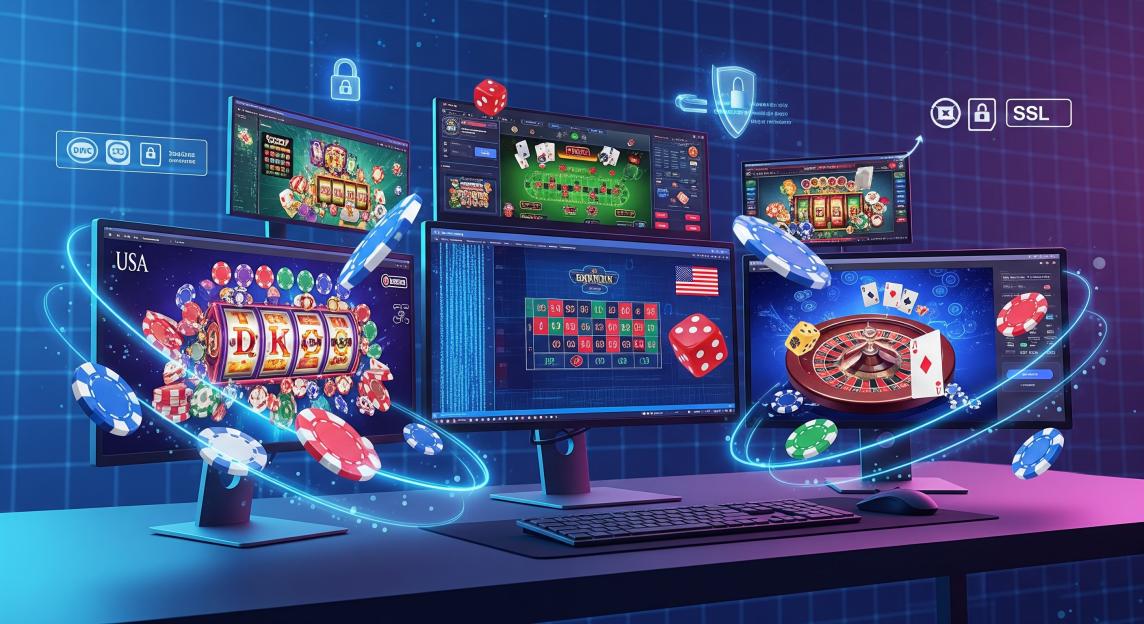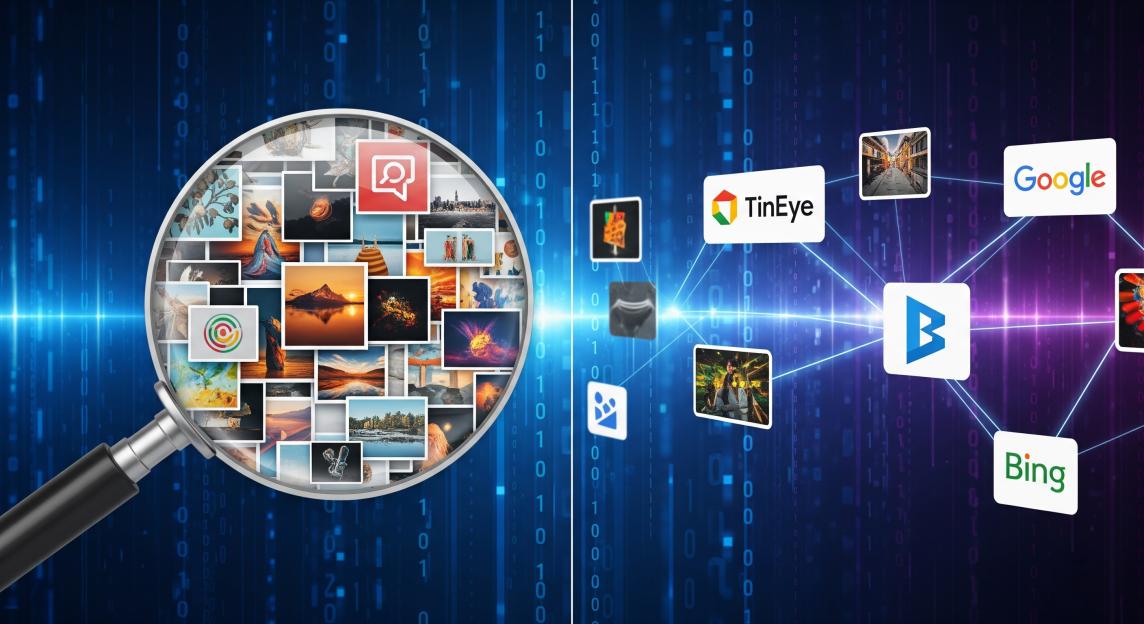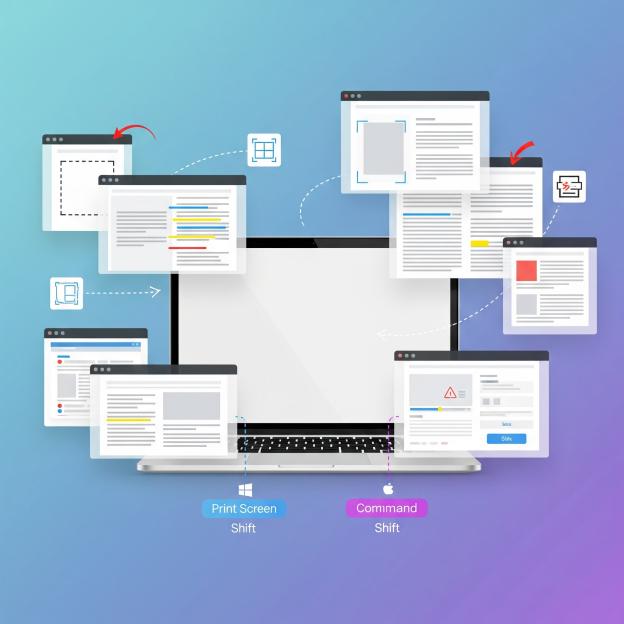Imagine walking into a digital world where every slot spin feels real, every card dealt is perfectly random, and every dollar wagered is protected by military-grade security. This isn’t magicâit’s the sophisticated universe of modern casino software, the invisible force transforming how millions of Americans experience online gaming today.
What Is Casino Software and Why It Matters
Casino software represents the technological backbone that powers every aspect of online gambling platforms. From the random number generators ensuring fair play to the sophisticated payment systems protecting your deposits, casino software encompasses everything that makes digital gambling possible, secure, and enjoyable.
In the United States, where online gambling laws vary by state and regulations continue evolving, casino software plays an even more critical role. It must not only deliver entertainment but also ensure compliance with complex legal frameworks while providing the security and fairness American players demand.
The Foundation of Digital Gaming
Modern casino software development has revolutionized the gambling industry. Unlike the mechanical slot machines of Las Vegas’s past, today’s digital gaming platforms rely on complex algorithms, artificial intelligence, and cloud computing to deliver experiences that often surpass their physical counterparts.
Casino game software creates virtual environments where traditional casino games come alive through stunning graphics, immersive sound effects, and innovative gameplay mechanics. Whether you’re playing blackjack on your smartphone during lunch break or spinning slots on your laptop at home, sophisticated software ensures every experience feels authentic and exciting.
Core Components of Casino Software Systems
Random Number Generation Technology
At the heart of every legitimate casino software platform lies the Random Number Generator (RNG). This critical component ensures that every game outcome is completely unpredictable and fair. Leading casino software providers like Microgaming, NetEnt, and Playtech invest millions in developing and testing their RNG systems to meet strict regulatory standards.
The RNG technology works by generating thousands of number sequences per second, even when no one is playing. When you click “spin” or “deal,” the software captures the current number sequence to determine your result. This process happens so quickly that it’s impossible to predict or manipulate outcomes.
Player Account Management Systems
Casino software includes sophisticated Player Account Management (PAM) systems that handle everything from registration and verification to banking and bonus management. These systems must process thousands of transactions daily while maintaining the highest security standards.
Modern PAM systems integrate with multiple payment processors, allowing players to deposit and withdraw funds using credit cards, e-wallets, cryptocurrencies, and bank transfers. They also track player behavior for responsible gaming purposes and manage loyalty programs that keep players engaged.
Game Integration Platforms
Security and Compliance Systems
With cyber threats constantly evolving, casino software must incorporate multiple layers of security. This includes SSL encryption for data transmission, fraud detection systems, and anti-money laundering (AML) tools. Additionally, software must comply with various regulations, including Know Your Customer (KYC) requirements and responsible gaming measures.
Leading Casino Software Providers in 2025
Tier 1: Industry Giants
NetEnt Swedish developer NetEnt has built a reputation for creating visually stunning slot games with innovative features. Their games like Starburst and Gonzo’s Quest have become industry classics. NetEnt’s software emphasizes mobile optimization and cross-platform compatibility, making it perfect for American players who prefer gaming on smartphones and tablets.
Tier 2: Rising Stars and Specialists
Pragmatic Play This relatively new provider has quickly gained recognition for producing high-quality slots with exciting bonus features. Their games like Sweet Bonanza and The Dog House have become player favorites. Pragmatic Play focuses on mobile-first design, ensuring their games perform flawlessly on all devices.
Evolution Gaming The undisputed leader in live dealer casino software, Evolution Gaming creates immersive live casino experiences that bridge the gap between online and land-based gambling. Their studios broadcast games 24/7, featuring professional dealers and multiple camera angles for an authentic casino atmosphere.
BGaming Known for their Provably Fair technology and cryptocurrency integration, BGaming appeals to tech-savvy American players. Their portfolio includes both traditional casino games and innovative titles that leverage blockchain technology for enhanced transparency.
Emerging Technologies and Niche Providers
Hacksaw Gaming Specializing in high-volatility slots and scratch cards, Hacksaw Gaming has carved out a niche with games that offer massive win potential. Their minimalist design approach and focus on gameplay over flashy graphics appeal to serious gamblers.
NuxGame This fast-growing provider offers turnkey casino solutions and API integration services. NuxGame’s software includes everything needed to launch an online casino, making it popular among new operators entering the American market.
Game Categories and Software Specializations
Slot Machine Software
- Video Slots: Feature-rich games with multiple paylines, bonus rounds, and progressive jackpots
- Classic Slots: Three-reel games that recreate the traditional slot machine experience
- Megaways Slots: Games with variable reels and up to 117,649 ways to win
- Branded Slots: Games based on popular movies, TV shows, and celebrities
Casino game development for slots involves complex mathematics to ensure proper return-to-player (RTP) percentages while creating engaging gameplay. The best slot software balances entertainment value with fair odds, keeping players engaged without becoming exploitative.
Table Game Software
Digital versions of classic casino table games require sophisticated software to replicate the authentic gambling experience. This includes:
- Blackjack Software: Multiple variants with different rules and side bets
- Roulette Platforms: American, European, and French roulette with realistic wheel physics
- Poker Games: Video poker variants and multi-hand options
- Baccarat Systems: Traditional and speed baccarat versions
Table game software must accurately simulate real-world card shuffling, wheel spinning, and dice rolling while maintaining the statistical properties that define each game’s house edge.
Live Dealer Technology
Live dealer casino software represents the cutting edge of online gambling technology. These systems combine high-definition video streaming, optical character recognition (OCR), and real-time data processing to create seamless live gaming experiences.
Leading live dealer software providers operate professional studios with multiple cameras, professional dealers, and sophisticated control rooms. The software automatically detects card values, roulette results, and dice outcomes, instantly updating player accounts and game interfaces.
Technology Trends Shaping Casino Software
Mobile-First Development
With over 60% of online casino players using mobile devices, casino software developers prioritize mobile optimization. Modern HTML5 technology ensures games load quickly and play smoothly on smartphones and tablets without requiring app downloads.
Responsive game design automatically adjusts to different screen sizes and orientations. Touch-friendly interfaces replace traditional mouse controls, and mobile-specific features like swipe gestures enhance the user experience.
Artificial Intelligence and Machine Learning
AI technology is revolutionizing casino software in multiple ways:
- Personalized Gaming: AI analyzes player behavior to recommend games and customize bonuses
- Fraud Detection: Machine learning algorithms identify suspicious activities and potential problem gambling
- Customer Support: AI-powered chatbots provide instant assistance for common questions
- Game Development: AI helps create more engaging game mechanics and balanced mathematics
Blockchain and Cryptocurrency Integration
Cryptocurrency adoption in online gambling continues growing, driving casino software innovation. Blockchain technology enables:
- Provably Fair Gaming: Players can verify that game outcomes weren’t manipulated
- Instant Transactions: Cryptocurrency deposits and withdrawals process within minutes
- Enhanced Privacy: Blockchain transactions offer greater anonymity than traditional banking
- Smart Contracts: Automated systems handle payments and enforce rules without human intervention
Virtual and Augmented Reality
Security and Fairness in Casino Software
Encryption and Data Protection
Modern casino software employs multiple security layers to protect player information and financial transactions. Advanced encryption protocols ensure that sensitive data remains secure during transmission and storage.
SSL certificates encrypt all communication between players’ devices and casino servers. Payment processors use tokenization to protect credit card information, while biometric authentication adds extra security for high-value accounts.
Regulatory Compliance
Casino software must comply with various regulations depending on operating jurisdictions. In the United States, this includes:
- State-Level Regulations: Each state with legal online gambling has specific requirements
- Federal Laws: Anti-money laundering and banking regulations apply nationwide
- International Standards: Software providers often maintain certifications from respected testing laboratories
Compliance features built into casino software include transaction monitoring, player verification systems, and responsible gaming tools like deposit limits and self-exclusion options.
Third-Party Testing and Certification
Independent testing laboratories like eCOGRA, GLI, and iTech Labs regularly audit casino software to verify fairness and security. These organizations test RNG systems, review game mathematics, and evaluate security protocols.
Certified casino software displays testing laboratory logos and provides access to payout percentage reports. This transparency builds trust with players and demonstrates commitment to fair gaming practices.
Choosing the Right Casino Software Provider
Key Selection Criteria
When evaluating casino software providers, operators should consider several critical factors:
Game Portfolio Diversity: The best providers offer extensive game libraries covering slots, table games, live dealer options, and specialty games. Variety keeps players engaged and attracts different demographics.
Technical Performance: Software must load quickly, run smoothly, and handle high traffic volumes without crashes or glitches. Poor performance drives players away and damages reputation.
Mobile Optimization: With mobile gaming dominating the market, software must deliver excellent experiences across all devices and operating systems.
Regulatory Compliance: Providers must understand local regulations and ensure their software meets all legal requirements for target markets.
Cost Considerations
Casino software pricing varies significantly based on the provider and business model:
- Revenue Share: Providers take a percentage of gross gaming revenue (typically 10-20%)
- Fixed Licensing: Monthly or annual fees regardless of casino performance
- Turnkey Solutions: Complete platforms with setup costs ranging from $50,000 to $500,000+
- Custom Development: Bespoke solutions costing hundreds of thousands of dollars
Operators must balance upfront costs with long-term revenue potential when selecting software providers. Cheaper options may lack important features or support, while premium providers offer better games and service but at higher costs.
Support and Maintenance
Reliable technical support is crucial for casino operations. The best software providers offer:
- 24/7 Technical Support: Round-the-clock assistance for critical issues
- Regular Updates: New games, security patches, and feature enhancements
- Training Programs: Staff education on software features and best practices
- Performance Monitoring: Proactive system monitoring and optimization
The Business Impact of Quality Casino Software
Player Retention and Engagement
High-quality casino software directly impacts player satisfaction and retention rates. Games that load quickly, run smoothly, and offer fair payouts keep players happy and loyal. Conversely, buggy software with poor graphics or unfair mechanics drives players to competitors.
Modern casino software includes sophisticated retention tools like loyalty programs, achievement systems, and personalized bonuses. These features use player data to create customized experiences that encourage continued play.
Revenue Optimization
Advanced casino software provides detailed analytics that help operators optimize their business. These systems track everything from popular games and peak playing times to player lifetime value and churn rates.
Revenue management tools adjust game offerings, bonus structures, and marketing campaigns based on real-time data. This data-driven approach maximizes profitability while maintaining positive player experiences.
Operational Efficiency
Comprehensive casino software platforms automate many routine tasks, reducing operational costs and human error. Automated systems handle player verification, payment processing, bonus allocation, and compliance reporting.
Integration with customer relationship management (CRM) systems enables targeted marketing campaigns and personalized customer service. This automation allows operators to focus on strategic growth rather than day-to-day maintenance.
Future of Casino Software Development
Emerging Technologies
Several technologies will likely shape casino software development in the coming years:
5G Connectivity: Faster internet speeds will enable more sophisticated live dealer games and real-time multiplayer experiences.
Edge Computing: Processing data closer to players will reduce latency and improve game performance, especially for mobile players.
Internet of Things (IoT): Connected devices may enable new forms of interactive gambling and seamless cross-platform experiences.
Quantum Computing: While still theoretical, quantum technology could revolutionize encryption and random number generation.
Regulatory Evolution
As more states legalize online gambling, software providers must adapt to evolving regulations. This includes developing jurisdiction-specific features and maintaining compliance with multiple regulatory frameworks simultaneously.
The potential for federal online gambling legislation could standardize requirements across states, simplifying compliance but potentially raising minimum standards for software providers.
Market Consolidation
The casino software industry continues consolidating as larger companies acquire smaller developers. This trend creates more comprehensive platforms but may reduce innovation and increase costs for operators.
Best Practices for Casino Software Implementation
Planning and Strategy
Successful casino software implementation requires careful planning and clear objectives. Operators should define their target audience, preferred games, and business model before selecting software providers.
Market research helps identify popular games and features in target demographics. Understanding player preferences guides software selection and customization decisions.
Testing and Quality Assurance
Thorough testing is essential before launching any casino software. This includes:
- Functionality Testing: Verifying all features work as intended
- Performance Testing: Ensuring software handles expected player volumes
- Security Testing: Identifying vulnerabilities before going live
- Compliance Testing: Confirming all regulatory requirements are met
Beta testing with real players provides valuable feedback for final adjustments and optimization.
Launch and Optimization
Successful software launches require coordination between technical teams, marketing departments, and customer support staff. Monitoring systems should track performance metrics from day one to identify and address issues quickly.
Post-launch optimization includes analyzing player behavior, adjusting game offerings, and implementing feedback. Regular software updates ensure continued performance and security.
Common Challenges and Solutions
Technical Challenges
Casino software faces unique technical challenges due to real-money transactions, regulatory requirements, and high security needs. Common issues include:
Scalability Problems: Traffic spikes during promotional events or jackpot wins can overwhelm servers. Cloud-based infrastructure and load balancing help manage variable demand.
Integration Difficulties: Combining software from multiple providers often creates compatibility issues. Standardized APIs and middleware solutions facilitate smoother integrations.
Security Vulnerabilities: Hackers constantly target gambling sites for financial gain. Regular security audits, penetration testing, and continuous monitoring help maintain protection.
Regulatory Challenges
Navigating complex and changing regulations requires ongoing attention and resources. Solutions include:
- Compliance Management Systems: Automated tools track regulatory requirements and ensure adherence
- Legal Expertise: Dedicated compliance teams or external consultants provide specialized knowledge
- Flexible Software Architecture: Modular designs allow quick adjustments for new regulations
Market Challenges
Intense competition and changing player preferences create ongoing business challenges. Successful operators address these through:
- Data-Driven Decision Making: Analytics guide strategy and identify opportunities
- Customer-Centric Design: Regular feedback collection and user experience optimization
- Innovation Investment: Staying current with technology trends and player demands
Industry Standards and Certifications
Testing Laboratory Certifications
Reputable casino software carries certifications from recognized testing laboratories:
eCOGRA (eCommerce Online Gaming Regulation and Assurance): Tests software fairness, security, and responsible gambling features.
GLI (Gaming Laboratories International): Provides comprehensive testing services for land-based and online gambling equipment.
iTech Labs: Specializes in online gaming software testing and certification.
TST (Technical Systems Testing): Offers testing services for gaming equipment and systems worldwide.
Licensing Requirements
Casino software providers must often obtain licenses in jurisdictions where they operate. Major licensing authorities include:
- Malta Gaming Authority (MGA): Prestigious European license with strict standards
- UK Gambling Commission (UKGC): Highly regarded regulatory body with comprehensive oversight
- Curacao eGaming: Popular license for international operators
- Gibraltar Gambling Commissioner: Well-respected European regulatory authority
Industry Organizations
Professional organizations promote best practices and industry standards:
Remote Gambling Association (RGA): Represents online gambling operators and promotes responsible gambling.
Gaming Standards Association (GSA): Develops technical standards for gaming equipment and systems.
International Association of Gaming Regulators (IAGR): Facilitates cooperation between regulatory authorities worldwide.
Conclusion: The Power Behind Digital Gaming
Casino software represents far more than lines of code or fancy graphicsâit’s the technological foundation enabling millions of Americans to enjoy safe, fair, and entertaining gambling experiences from anywhere. As the industry continues evolving with new technologies, regulations, and player expectations, the importance of choosing the right software partners becomes even more critical.
Whether you’re an operator planning to enter the market or a player curious about the technology behind your favorite games, understanding casino software helps appreciate the complexity and sophistication of modern online gambling. The providers and technologies shaping today’s industry will determine how we experience digital gaming tomorrow.
The future of casino software looks brighter than ever, with innovations in artificial intelligence, virtual reality, and blockchain technology promising even more exciting and secure gaming experiences. As more states embrace online gambling and technology continues advancing, casino software will undoubtedly remain at the heart of America’s digital gaming revolution.
By staying informed about casino software trends, choosing reputable providers, and prioritizing security and fairness, both operators and players can ensure the continued growth and success of the online gambling industry. The chips are down, the games are ready, and the software is runningâwelcome to the future of digital gaming.







